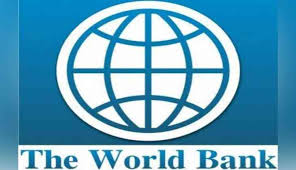WASHINGTON, Oct 14: The World Bank has announced that its Board of Executive Directors has approved 12 billion US dollars for developing countries to finance the purchase and distribution of COVID-19 vaccines, tests and treatments for their citizens.
The financing, which aims to support vaccination of up to 1 billion people, is part of an overall World Bank package of up to 160 billion dollars through June 2021 to help developing countries fight the pandemic, according to a statement released on Tuesday.
It adds new financing to the World Bank’s COVID-19 emergency response programs that are reaching 111 countries, the statement noted.
“We are extending and expanding our fast-track approach to address the COVID emergency so that developing countries have fair and equal access to vaccines,” World Bank Group President David Malpass said.
“Access to safe and effective vaccines and strengthened delivery systems is key to alter the course of the pandemic and help countries experiencing catastrophic economic and fiscal impacts move toward a resilient recovery,” Malpass said.
Global COVID-19 cases surpassed 38 million as of Tuesday night, with more than 1 million deaths recorded, according to a real-time data-tracking tool developed at Johns Hopkins University.
In its latest World Economic Outlook report released Tuesday, the International Monetary Fund (IMF) projected the global economy to contract by 4.4 per cent in 2020, warning that the ascent out of this crisis is likely to be “long, uneven, and highly uncertain.”
“The virus is resurging with localized lockdowns being re-instituted. If this worsens and prospects for treatments and vaccines deteriorate, the toll on economic activity would be severe, and likely amplified by severe financial market turmoil,” IMF Chief Economist Gita Gopinath said at a virtual press conference.
On the upside, Gopinath noted, faster and more widespread availability of COVID-19 tests, treatments, vaccines, and additional policy stimulus can significantly improve the outlook. (UNI)
Trending Now
E-Paper


